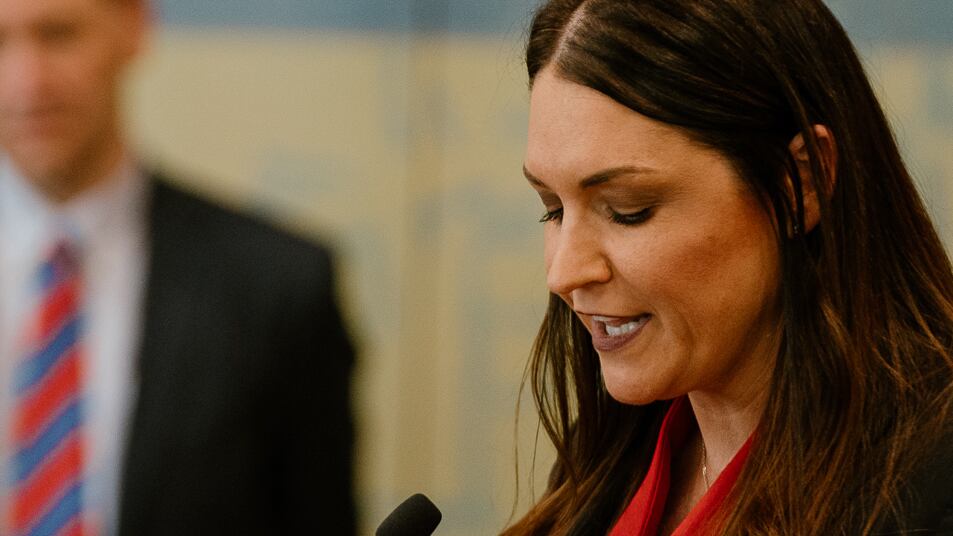The Oregon Government Ethics Commission unanimously voted Friday morning to launch a full investigation into former Secretary of State Shemia Fagan and her relationship with the co-founders of the La Mota cannabis dispensary chain, Rosa Cazares and Aaron Mitchell.
Fagan resigned May 2 following WW’s reporting in April that she was working for the embattled duo, who for years have failed to pay their bills. The Ethics Commission launched a preliminary investigation into Fagan’s contract after receiving a number of citizen complaints about Fagan’s conduct in late April. The commission had 60 days to complete a preliminary review of the matter.
In the OGEC report published Friday afternoon, staff concluded there was reason to believe Fagan may have leveraged her elected position for personal financial gain by entering into the contract with La Mota’s affiliate company, Veriede Holding. Staff also wrote that there were grounds to believe the position offered by La Mota may not have been available to Fagan were it not for her elected position. (Fagan, by her own account, met Cazares and Mitchell only after she launched her 2020 campaign for secretary of state.)
“Based on the information available in this preliminary review, it appears Shemia Fagan may have used her position to create or advance an opportunity for personal financial gain,” the staff report reads, “and that opportunity was available to her because she held her official position.”
Oregon ethics laws prohibit public officials from using their positions to obtain financial benefits that would not have been available but for their public positions.
Staff also concluded, based on preliminary findings, that Fagan may have used her position to bolster her contract work by contacting the lieutenant governor of Connecticut to talk about La Mota. The two knew each other only because of their elected positions, staff concluded. “It also appears that Ms. Fagan may have used the connections she established in her official position to advance the interests of [the La Mota affiliate] Veriede.”
The report says there’s also reason to believe Fagan may not have properly disclosed a potential conflict of interest raised by an ongoing audit her office oversaw of the Oregon Liquor and Cannabis Commission, which regulates La Mota. (Fagan recused herself from the audit before she took the Veriede contract in February. She emailed staff and alerted them of her recusal, but the OGEC’s report notes that this “does not identify the cannabis company that she was working for and thus does not appear to provide sufficient information for the public [or her senior staff] to understand or evaluate the nature of her conflict of interest.”)
Staff said it also found reason to believe Fagan may have “failed to report required information” on annual disclosure reports that each elected official must submit about their income.
David Elkanich, Fagan’s attorney, rebutted the allegations made in the complaints in a June 29 letter to the OGEC. In that letter, Elkanich insists Fagan kept her public service and her personal employment separate, and that she followed all state ethics laws.
“If suspicion and innuendo are enough to find that Ms. Fagan violated ethics rules, despite the undisputed evidence of Ms. Fagan’s good faith actions to follow all OGEC guidelines,” Elkanich wrote in his response, “then OGEC would allow innuendo and optics alone to render suspect the private employment of hundreds of public officials across Oregon.”
Elkanich’s response also revealed that Fagan, whose personal finances were in disarray, sought employment outside of her elected position in early January. Among the three jobs she applied for: a remote “Certified Life Coach” and interim CEO of Courthouse Dogs Foundation, a nonprofit based in Washington state.
The commission received four complaints relating to Fagan in late April after WW first revealed the cannabis contract. La Mota, Mitchell and Cazares were regular donors to top Democratic Party candidates, until WW‘s March report on the couple’s state and federal tax liens and allegations they failed to pay vendors.
The commission has 180 days to complete its full investigation.
Meanwhile, two other investigations into the Fagan matter remain ongoing. The U.S Department of Justice is conducting a criminal investigation relating to Fagan and La Mota, for which five state agencies have been issued broad subpoenas. The Oregon Department of Justice hired a California consulting firm to conduct an investigation into the audit of the Oregon Liquor and Cannabis Commission that Fagan oversaw and which was tailored to the complaints of Cazares.
